In such a time, when the contemporary democratic, theological and leadership scenes has become chaotic, ethnicized, and corrupted, Patriarch Professor Bolaji Idowu (1913-1993), one of the most influential theologians in Africa during the last half of the 20th century, a pioneer in developing African Christian Theology provides a pointer on the task of theology and how theology is to be pursued and effectively applied. Patriarch Bolaji’s major works especially on church leadership with particular reference to the vision behind Methodist episcopacy has potential to renew and revive the Church in Nigeria and Africa because it is based and deeply rooted in the Scripture, Tradition, Reason and Experience. Methodist episcopacy relates to a model of evangelical theology found in the Wesleyan Quadrilateral. Patriarch Professor Bolaji Idowu is synonymous with Nigerian Methodist episcopacy as well as ‘Department of Religious Studies,’ University of Ibadan. Idowu’s three major publications: Olodumare: God in Yoruba Belief; African Traditional Religion: A Definition; and Towards an Indigenous Church, provides a well of deep reflection on applied theology for church and leadership renewal. According to Patriarch Bolaji Idowu, ‘the burden of giving the church in Nigeria an indigenous complexion … rest heavily upon Christian Nigerians. No foreigner can do the work for them.’
In replacement of the imported British Methodist Presidential model of leadership, after his election as President on 4th October 1972 at Methodist Church, Yaba, Professor Bolaji Idowu conceived a new theology and leadership for the New Methodist Church in Nigeria. As a theoretician and liturgist, in one of his publications, Towards an Indigenous Church, the outcome of a series of three broadcast talks that Idowu gave on radio in Nigeria, he ‘showed that the church ought to come of age in Africa and in Nigeria, and discarded prefabricated European dominated liturgist and structures.’ For Idowu, the nature of the church is ‘a powerful living stream which flows into and through the nations, giving of itself to enrich the people and transforming the land, bringing from and depositing in each place something of the chemical wealth of the soils which it encounters on its way, at the same time adapting itself to the shape and features of each locality, taking its colouring from the native soil, while in spite of all these structural adaptations and diversifications it esse and differentia are not imperilled but maintained in consequence of the living, ever replenishing, ever revitalising spring, which is its source.’ The book, Towards An Indigenous Church published in 1965 shows Idowu’s acceptance of the evangelical presupposition upon which Christianity is built in comparison to, Olodumare: God in Yoruba Belief, his doctoral dissertation published in 1962.
Professor Kalu Uka described the book, Towards An Indigenous Church, as ‘nuggets of perspective thought,’ ‘the heart of which could produce blood that would ensure the survival, today, of Christianity in Nigeria.’ According to Professor Samuel Erivwo, Bolaji Idowu’s legacy ‘is a classic example of a case where a scholar with the necessary brains, insight, stamina, and courage, attempted to translate his theories in the lecture halls into practice in the world.’ Bolaji Idowu’s new episcopacy, ‘Asaba theology’ is corporate, indigenised and contextualised in other to avoid the fate suffered by ‘the North African Church in the seventh century, or Latin Christianity along the West African coast from the fifteenth to the eighteenth centuries.’ Among the major steps taken by Bolaji Idowu in the process of the new indigenous episcopacy was the historic and corporate joint meeting of the Nigerian Methodist committees on the Life of the Church, Faith and Order, and Law and Polity held at Asaba Rural Training Centre in 1974. The result was a new theology that ‘reflects her (Methodist) adulthood,’ and the reference point for the Nigerian Methodist episcopacy. The draft of the new Constitution based on the resolutions from Asaba Retreat was adopted at the 13th Annual Conference of Methodist Church held at Immanuel College, Ibadan from November 27th to December 3rd 1974. This was followed by series of objections and amendments. Finally, the service for the adoption of the new constitution was held on the historic Appointed Day, January 20th, 1976 at Methodist Church of the Trinity, Tinubu, Lagos. During the service, Patriarch Idowu and other appointed Archbishop and Bishops were invested hence, the dawn of an indigenous corporate Methodist episcopacy in Nigeria.
The Church of England’s monarchical approach to episcopacy which was exported and spread to all other English mission areas especially when ‘the new missions on the Niger imperatively require episcopal superintendence’ was shaped by the Lambeth Quadrilateral. According to the Lambeth fathers, the fourth article of the Quadrilateral permits the Episcopate (historical) to be locally adapted in the methods of administration to the varying needs of the nations and peoples concerned, hence the indigenous uniqueness of the Nigerian Methodist episcopacy. Using the words of Jesse Page in his book, The Black Bishop: Samuel Adjai Crowther, Bolaji Idowu, vision was about ‘a native church … raised …, in a great measure self-supporting and self-ministering … to enter upon its duties as a missionary church and send forth its evangelists into heathen and Mohammedan countries,’ western missionaries could not reach.’ Idowu’s episcopacy also points to Henry Venn idea of indigenization of the ‘ministry so the native ministry … culminate in a native episcopate … of self-governing, self-supporting, self-propagating churches.’
The Nigerian Methodist episcopacy, a model of evangelical theology shaped by the Wesleyan Quadrilateral is based on ‘One Book,’ the Scripture, containing all things necessary for salvation, and as being the rule and ultimate standard of Methodism and especially the Christian faith. Methodist episcopacy as a fluid structure inspired by the Holy Spirit points to an effective mean of grace for indigenous and international missional witness and engagement. Beyond the monarchical three-fold order of ministry consisting of bishops, priests and deacons, Methodist episcopacy is corporate in collaboration with the laity.
Methodist episcopacy at 40 calls for missional incarnation and renewal in order to reposition the church for the contemporary challenges and quest for national revival and fight against corruption. Repositioning in line with the church new constitution has to do with collaborative mission along the same line as the Holy Trinity does. Effective episcopal repositioning has the potential to match up in practice to Methodist theology, spirituality, morality, and discipleship.
Methodism episcopacy at 40 calls for a reflection on Asaba Retreat Document (ARD) in order to rekindle the renewal and development of our episcopal ministry in practice, theology, mission and contemporary circumstances and challenges drawn from changing systems of philosophical and contemporary political thoughts. Methodist episcopacy at 40 provides opportunity to give missional leadership for a new Nigeria based on effective biblical teaching, caring for souls, and shepherding of members in preparation for healing of homes and national renewal. Methodist episcopacy at 40 could be a window of prophetic renewal and counter cultural to our national, ecclesiastic, democratic, institutional corruption, distortion, and bureaucracy. Patriarch Bolaji Idowu lives on because Methodist episcopacy as a calling with function, locally adapted and Bible based, is about God and a united mission of Methodism in Nigeria and the world as our parish. Methodist episcopacy at 40 provides opportunity to guide against past crisis in the bond of ‘One Mission, One Nigeria.’ Methodist episcopacy at 40 calls for the integration and study of Methodist episcopacy in our theological curriculum to promote renewal and preservation of our historic document of faith, episcopal heritage and development.

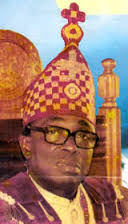
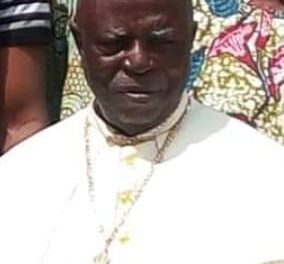
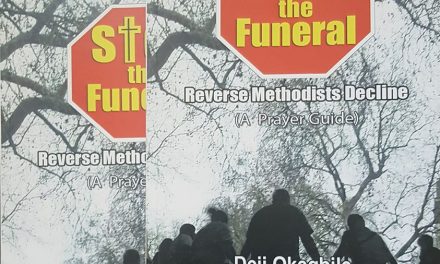

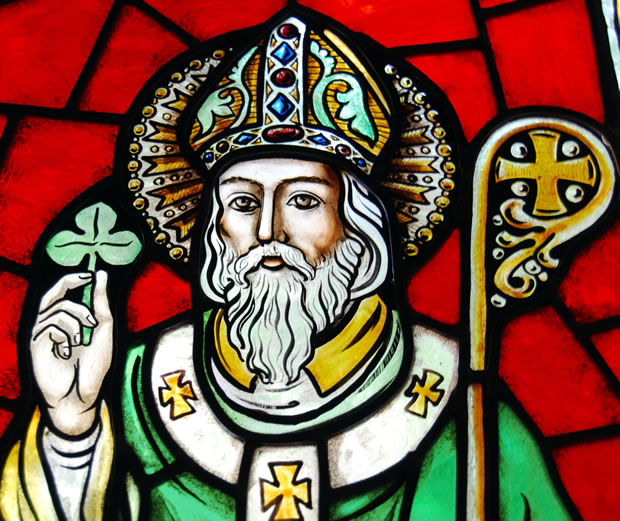
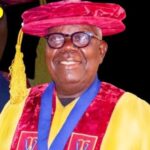
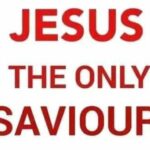


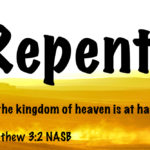
Glory b to God for this beautiful write up may God grant u more and more wisdom IJN
Dear sir, Amen to your prayer and thank you for your encouragement. Baba Idowu is a book that can never be exhausted.
His leadership legacy abides with us.
I really love this, this gives me more background of our episcopacy in Nigeria, may the lord give us grace to recognise our present status in episcopacy, and the lord will give the church the grace to retrace her step back to the intention of of Patriarch.
To God be the glory and God bless you sir.
Amen in Jesus Name… Thank Sir.
To God be the glory. Worthy is the Lamb!
Great work your very Rev , my request is can I have access to Video of Bolaji Idowu service (s).
Thanks to God my dear brother. I will look into your request.
The legacy of His Pre-Eminence Bolaji lives on! It took courage, perseverance and great determination to be a hero and genus! Baba Bolaji Idowu was indeed a hero of Methodist Church Nigeria in the way he shaped the church spiritually and organizationally! May his soul continue to rest in peace in the bosom of his creator!
To God be the glory for the Nigerian Methodist first Patriarch